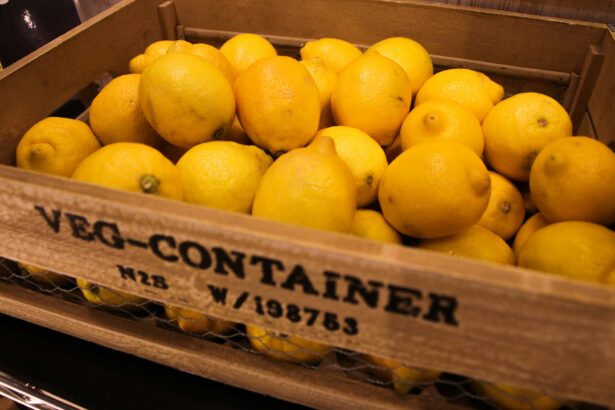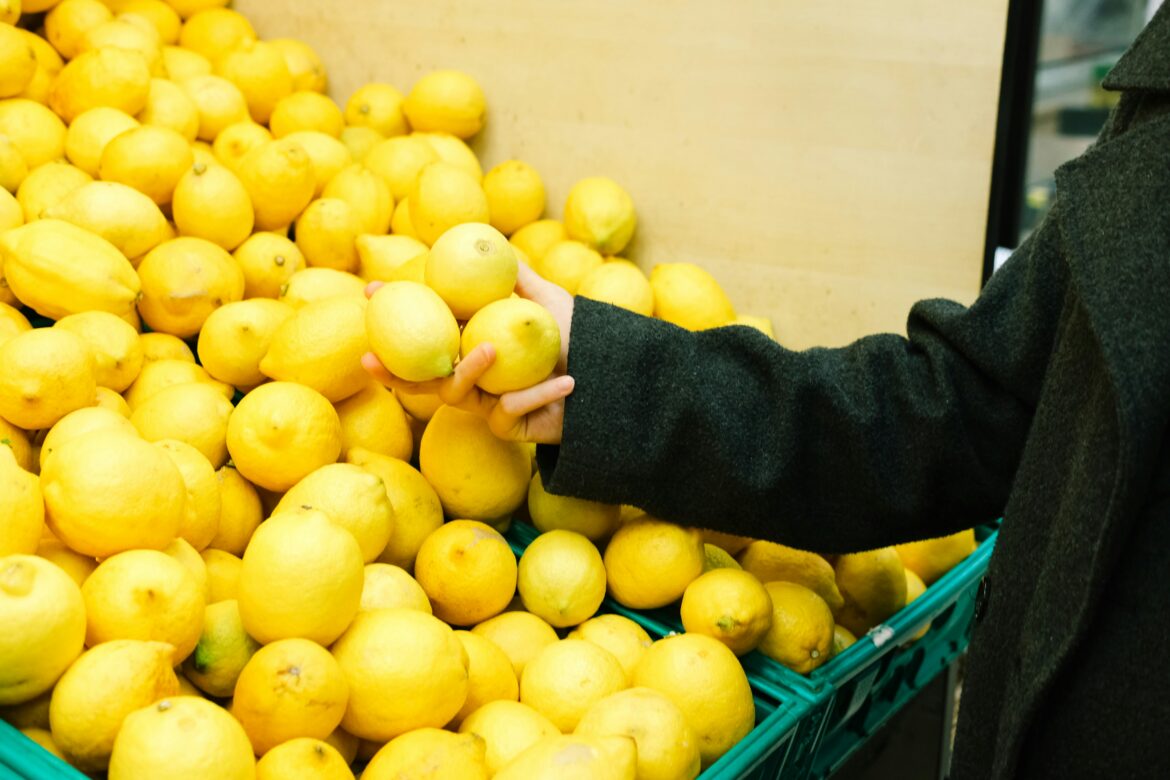Peloponnese lemons are renowned for their intense aroma, vibrant yellow color, and high juice content, making them a staple in both domestic and international markets. Grown in the fertile groves of Argolida and Lakonia, these lemons benefit from the region’s Mediterranean climate — mild winters, abundant sunshine, and mineral-rich soil — which contribute to their bold flavor and balanced acidity. Popular varieties such as Maglini and Interdonato thrive here, producing fruit with thin skin, minimal seeds, and exceptional shelf life. Harvested from autumn through spring, Peloponnesian lemons offer a consistent supply window that aligns well with European demand for fresh citrus.
Export
Packing operations in the region are designed to preserve the lemons’ quality and visual appeal. After sorting by size and ripeness, the fruit is packed in ventilated carton boxes (typically 10–15 kg) or net bags for retail distribution. Each unit includes traceability labeling with origin, variety, and harvest date, ensuring compliance with EU standards and reinforcing the premium image of Greek citrus. Cold storage and hygienic handling protocols help maintain freshness during transport, while the lemons’ natural resilience makes them ideal for culinary use, juice production, and organic markets. Peloponnese lemons stand out not only for their taste but also for their authenticity and connection to Greece’s agricultural heritage.
Peloponnese lemons are a true gem in our citrus selection. Their vibrant color, intense aroma, and high juice yield make them ideal for both culinary and juice applications. We’ve been sourcing from Argolida and Lakonia for three seasons now, and the consistency in quality and packaging has been outstanding. Our clients appreciate the authentic Greek flavor and the traceability that comes with every shipment.
— Mediterranean Food Importer, Austria
Our Solutions
Packing is a vital stage in the citrus export process, ensuring that fruit maintains its freshness, appearance, and quality from grove to destination. In Peloponnese facilities, oranges, tangerines, and lemons are carefully sorted by variety, size, and ripeness before being packed in formats suited to their market — such as ventilated carton boxes for bulk shipments or net bags for retail display.
Each unit is labeled with origin, harvest date, and traceability codes to meet EU standards and build consumer trust. Hygienic handling, cold storage, and efficient logistics complete the process, turning premium Greek citrus into a reliable and recognizable product across Europe.
- Size & Quality Sorting: Lemons are graded by diameter, skin texture, and ripeness to ensure uniformity and premium presentation.
- Carton Box Packing: Typically packed in 10–15 kg ventilated cardboard boxes designed for durability and airflow during transport
- Net Bag Packing: Used for retail markets; breathable mesh bags (1–3 kg) enhance visibility and consumer convenience.
- Ventilation & Moisture Control: Packaging materials include airflow holes to prevent condensation and preserve freshness.
- Labeling & Traceability: Each unit includes origin, variety, harvest date, and batch codes to meet EU import standards.
- Cold Chain Integration: Pre-shipment refrigeration and temperature-controlled logistics extend shelf life and maintain aroma.
- Variety-Specific Handling: Thin-skinned types like Maglini require gentle handling to avoid bruising and maintain visual appeal.
Packing

Net Packing
Net packing is a popular and practical method for presenting citrus fruit, especially tangerines and lemons, in retail-friendly formats. Using breathable mesh bags—typically ranging from 1 to 3 kilograms—this approach allows for excellent ventilation, visibility, and consumer convenience. The netting showcases the fruit’s vibrant color and smooth skin while maintaining freshness during transport and shelf display. Each pack includes a printed label with essential traceability information such as origin, variety, and harvest date, ensuring compliance with EU standards. Net packing is ideal for premium Peloponnesian citrus, combining strong shelf appeal with reliable quality assurance.

Carton Box Packing
Carton box packing is the cornerstone of citrus export logistics, offering durability, ventilation, and compliance with international standards. In Peloponnese facilities, lemons, tangerines, and oranges are sorted by size and ripeness before being placed in corrugated cardboard boxes—typically 10 to 15 kilograms each. These boxes feature ventilation holes to maintain airflow and reduce moisture buildup, preserving the fruit’s freshness and aroma during transport. Each carton is labeled with origin, variety, harvest date, and traceability codes, ensuring transparency and meeting EU import requirements. Carton packing is ideal for wholesale buyers and distributors seeking consistent quality, efficient stacking, and shelf-ready presentation

